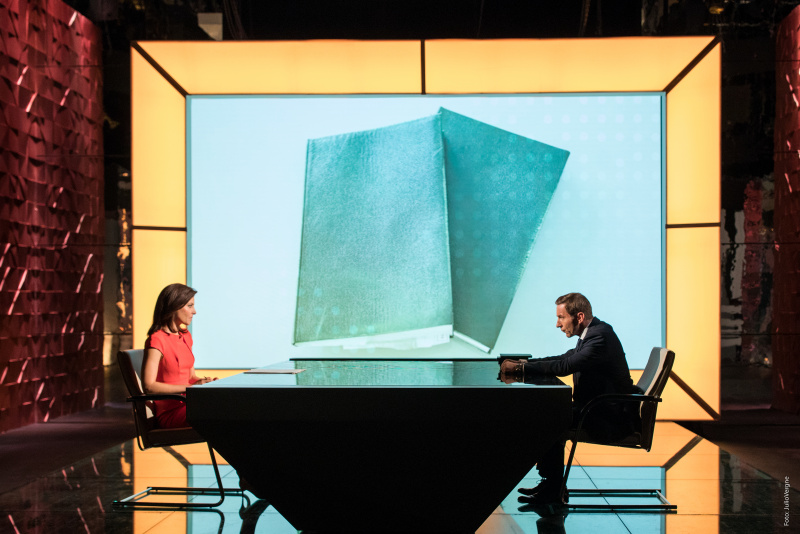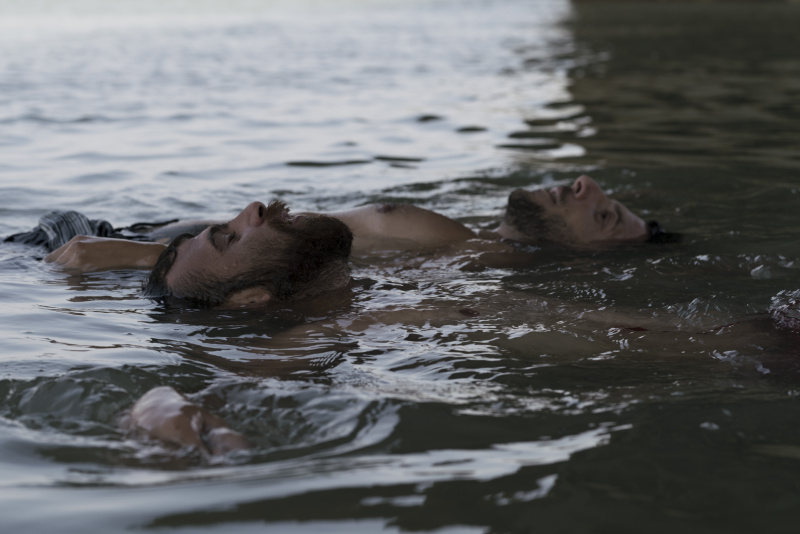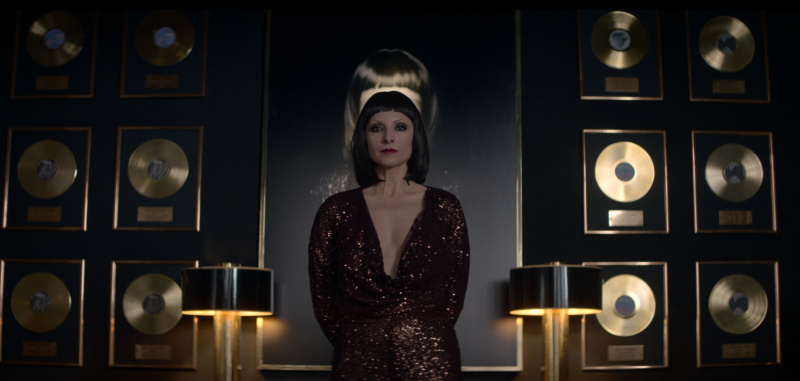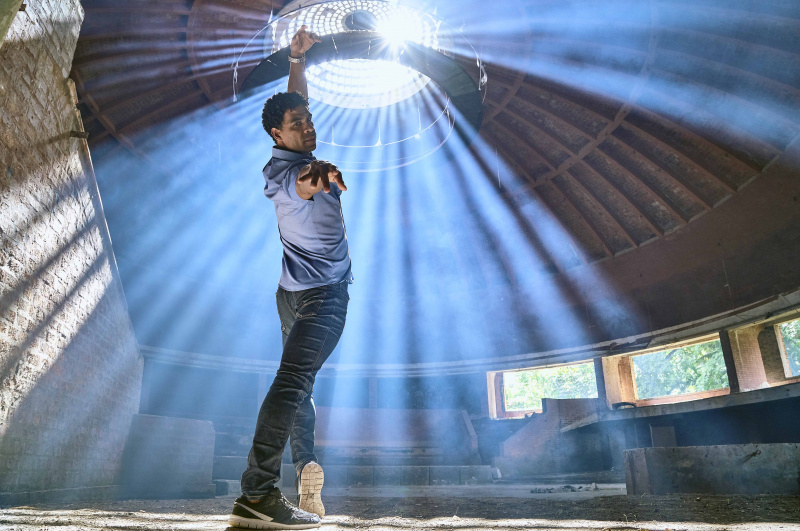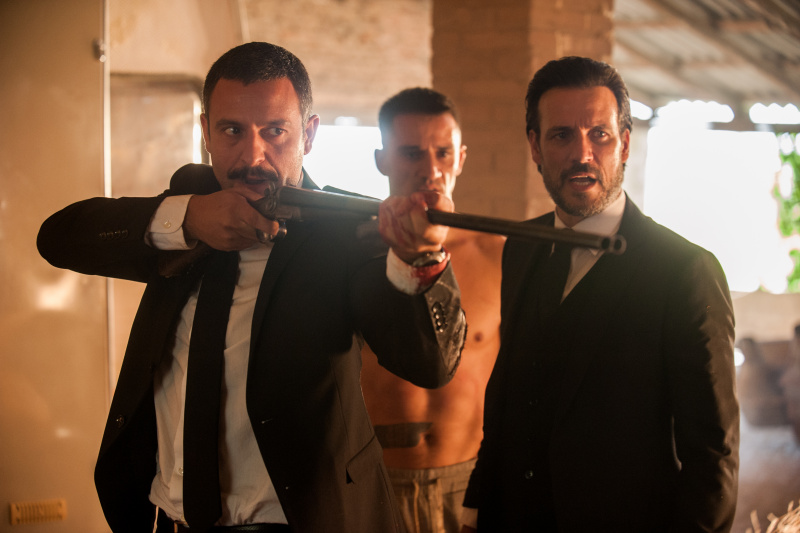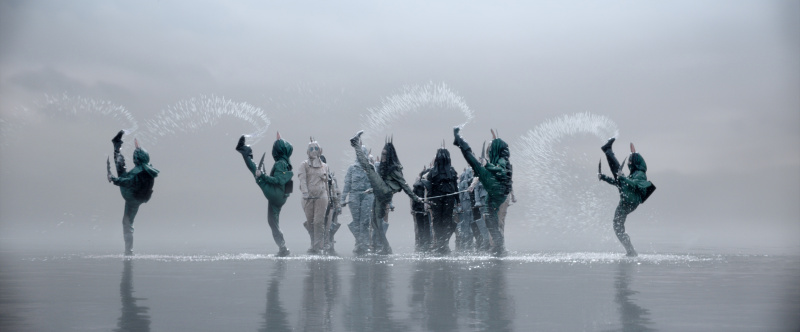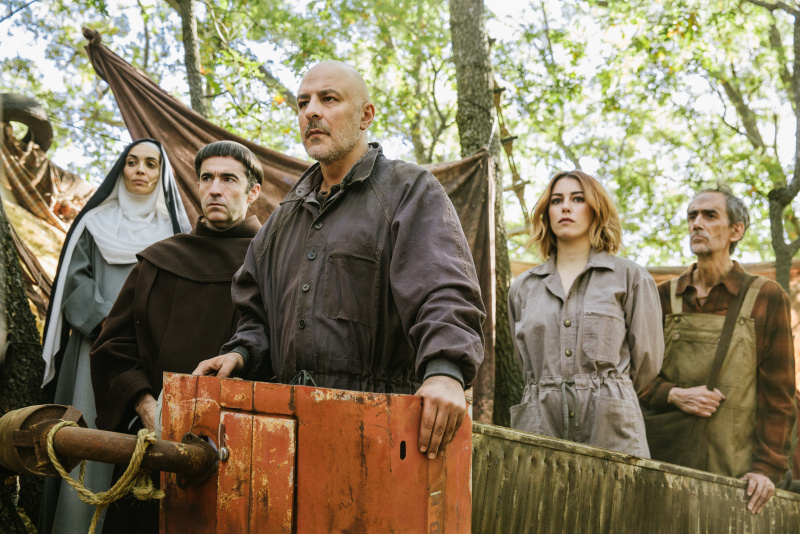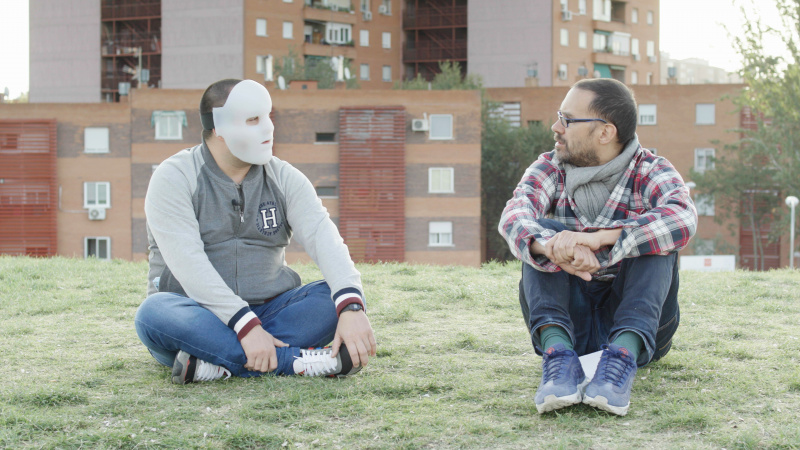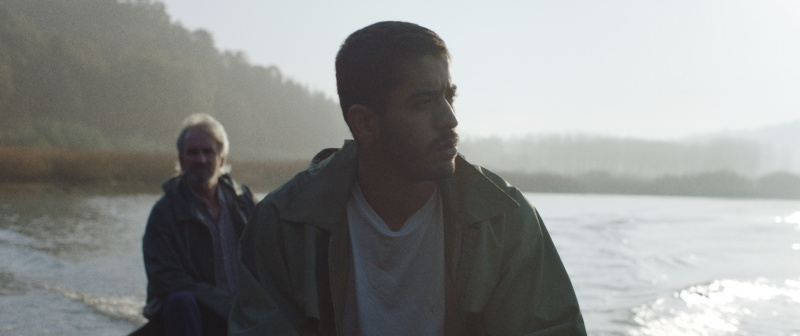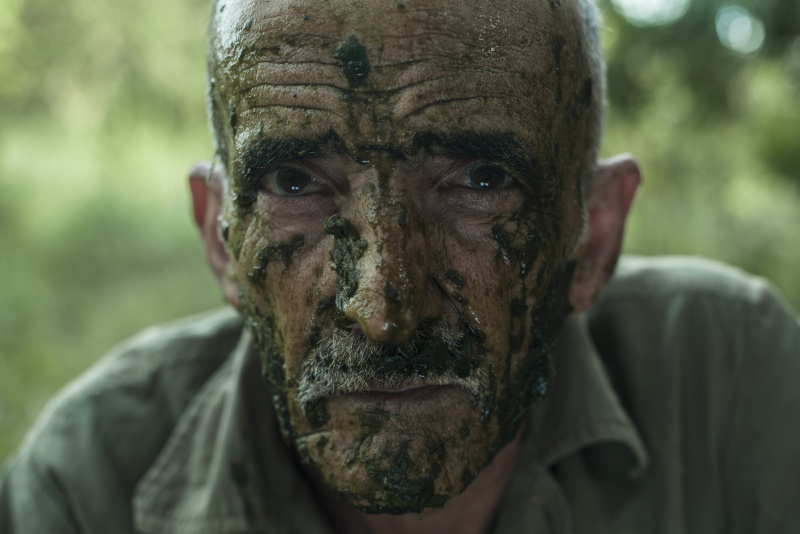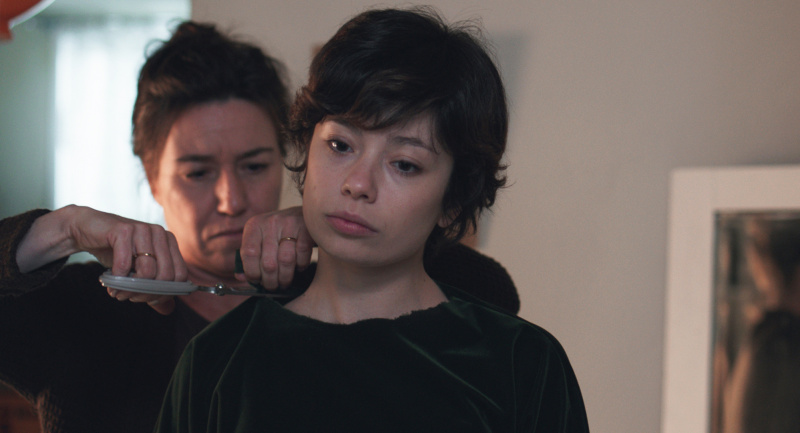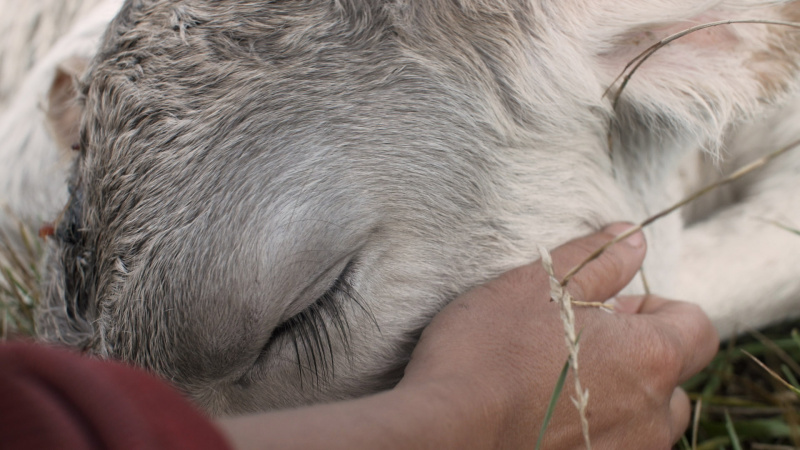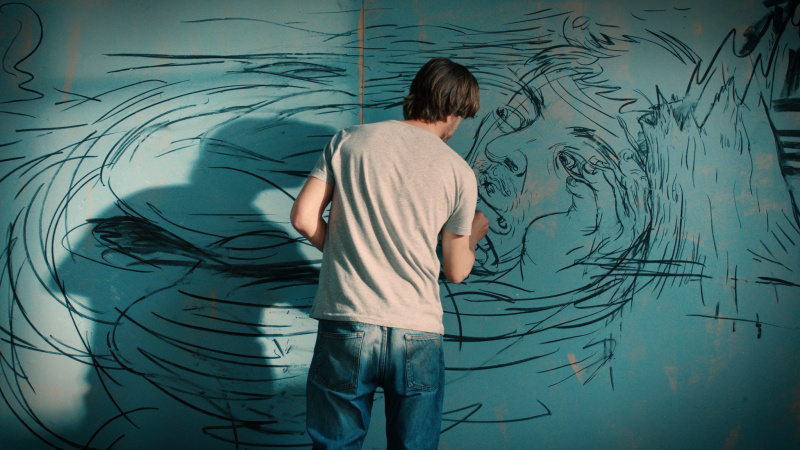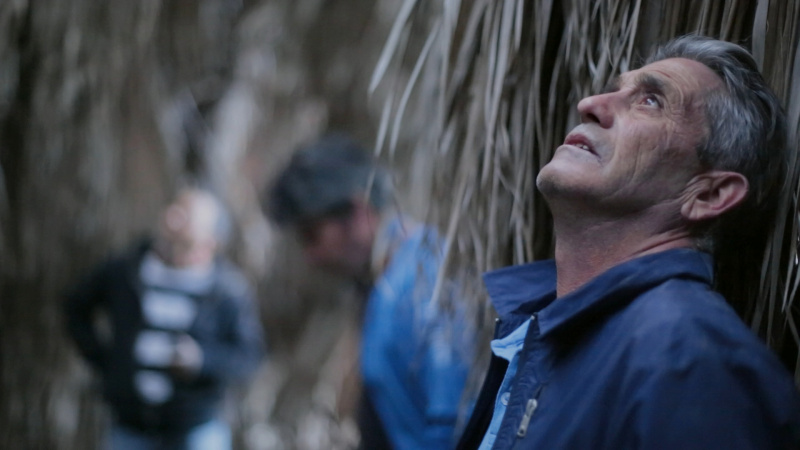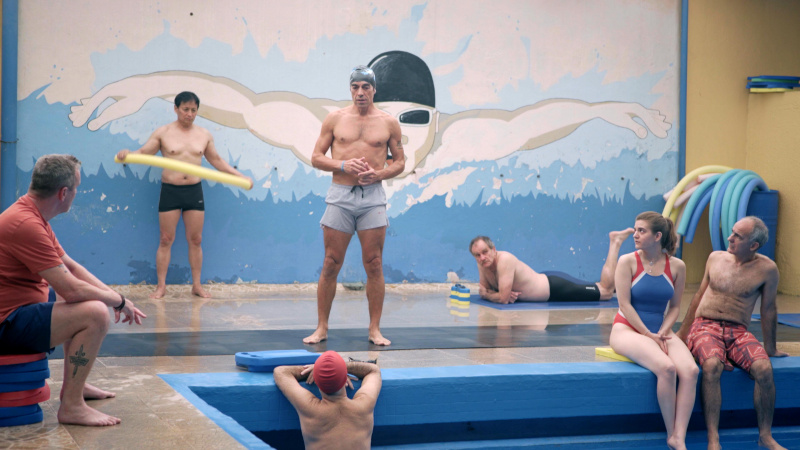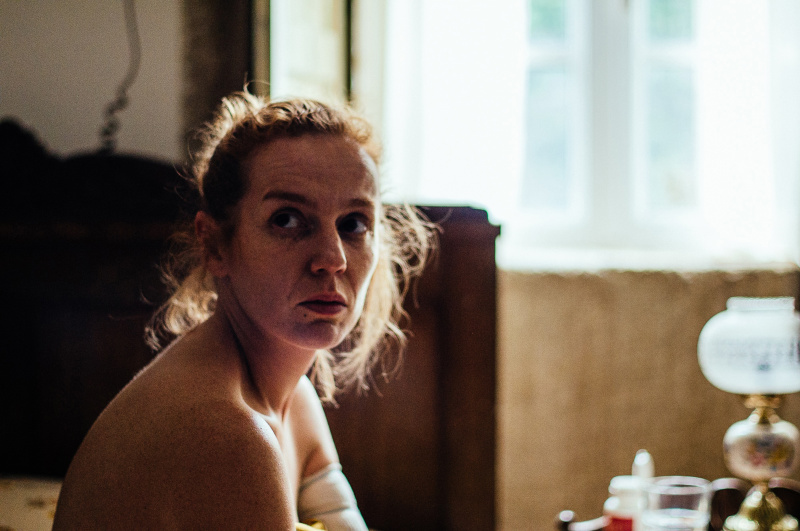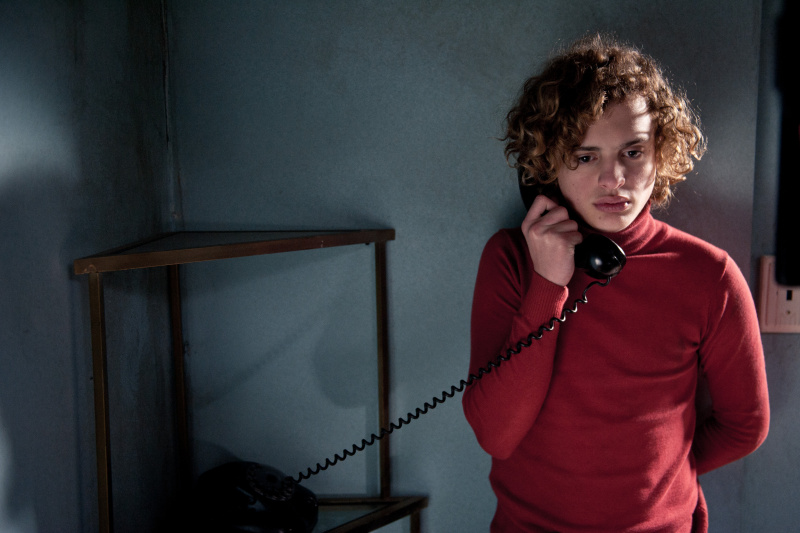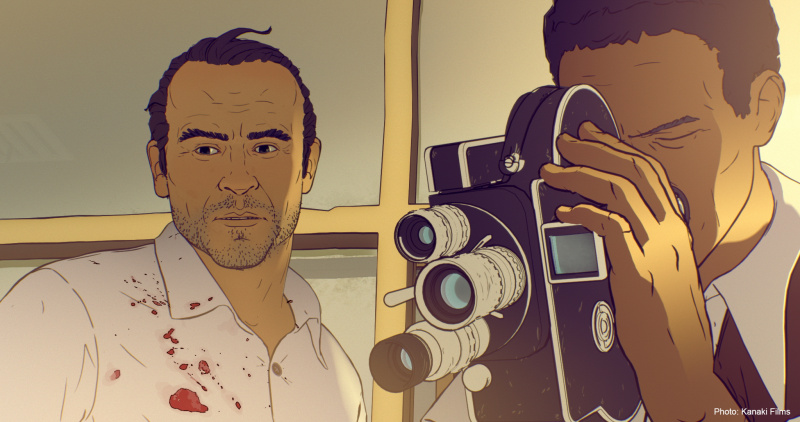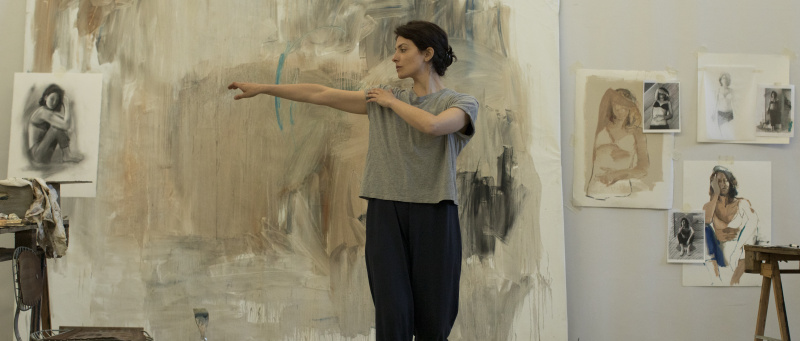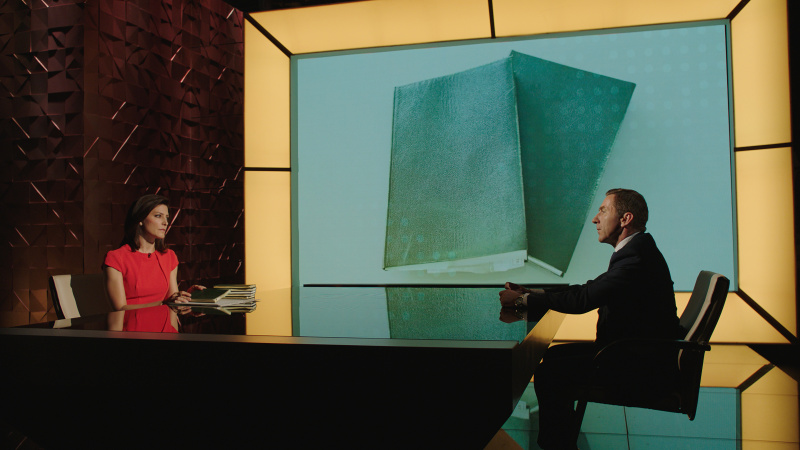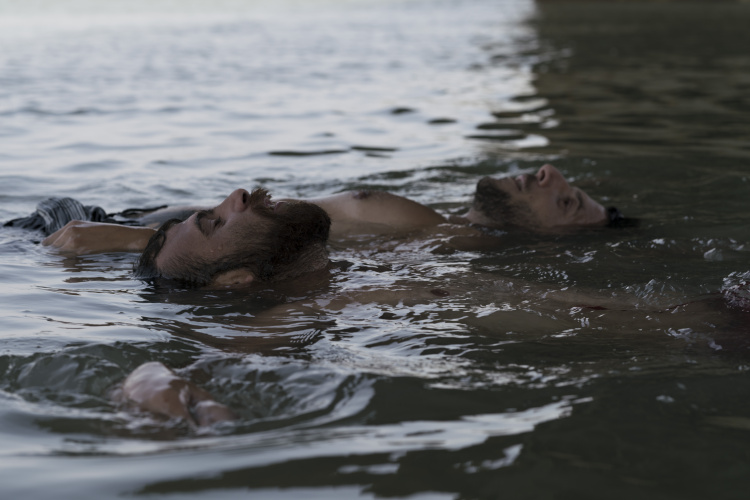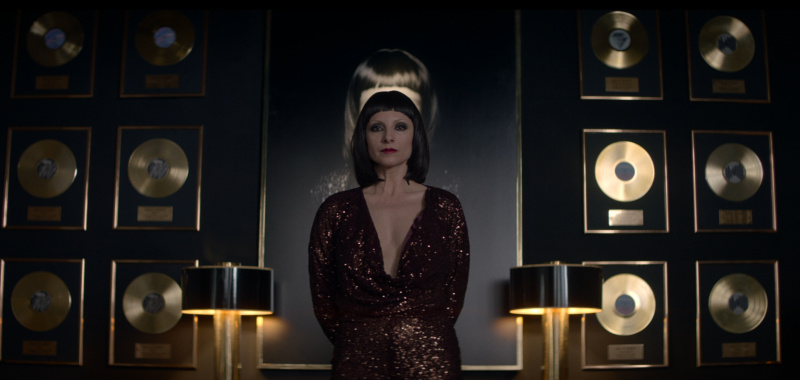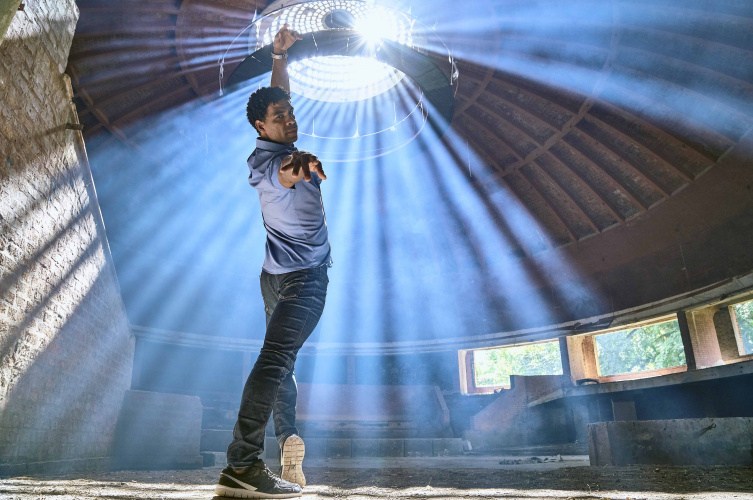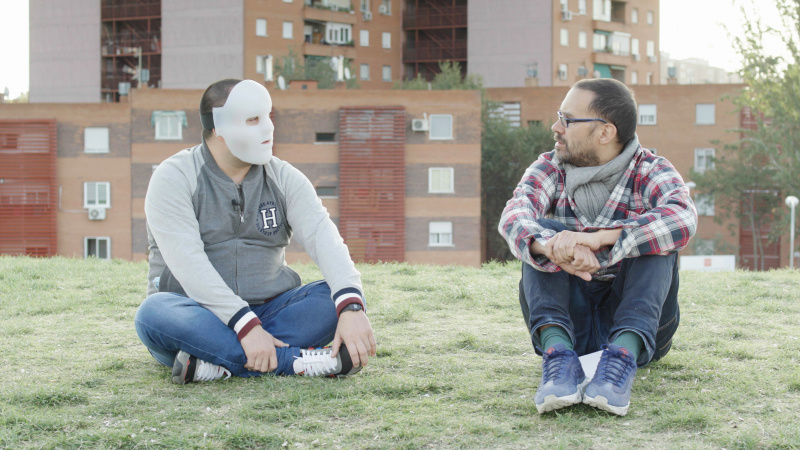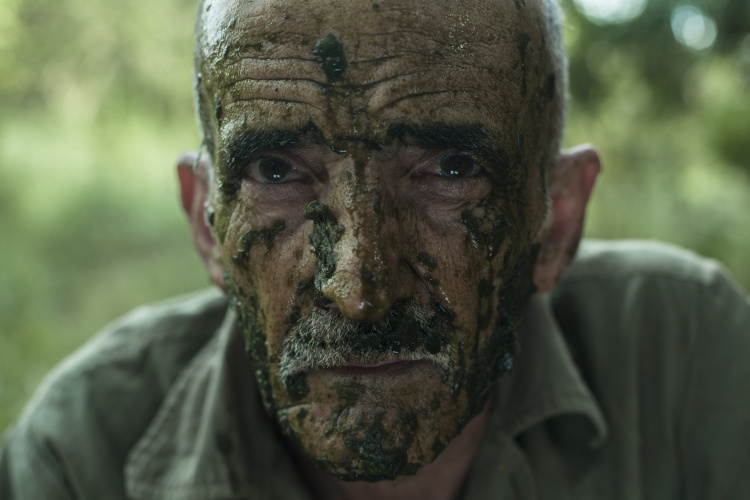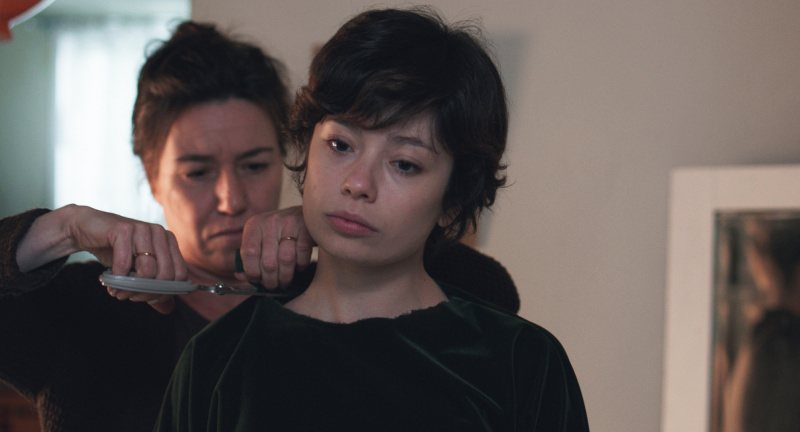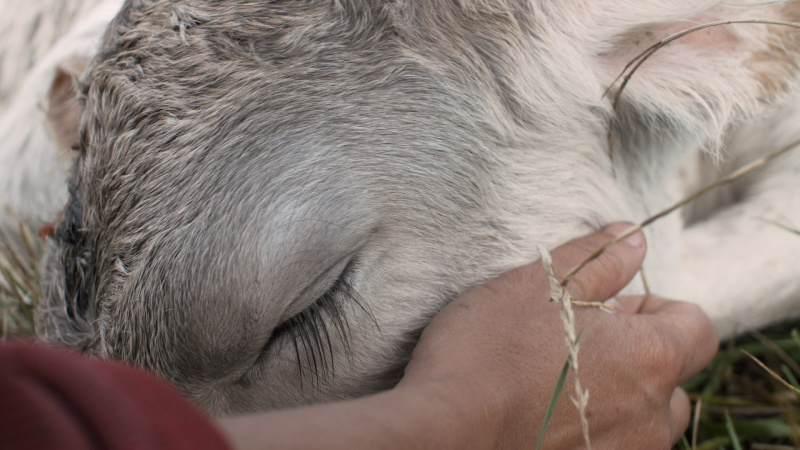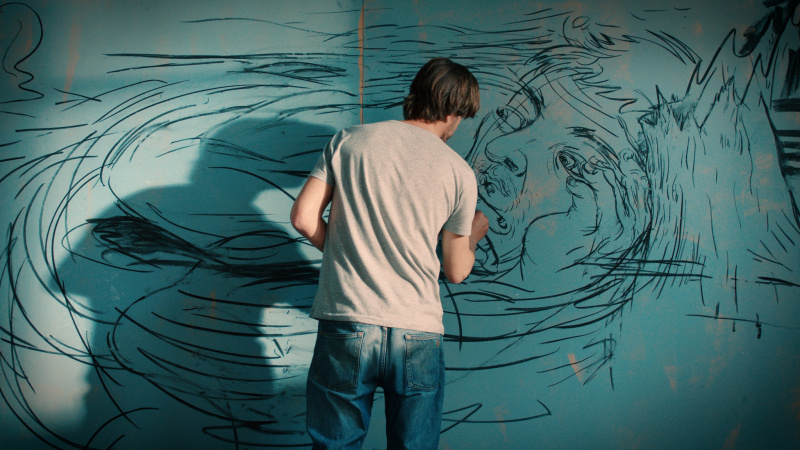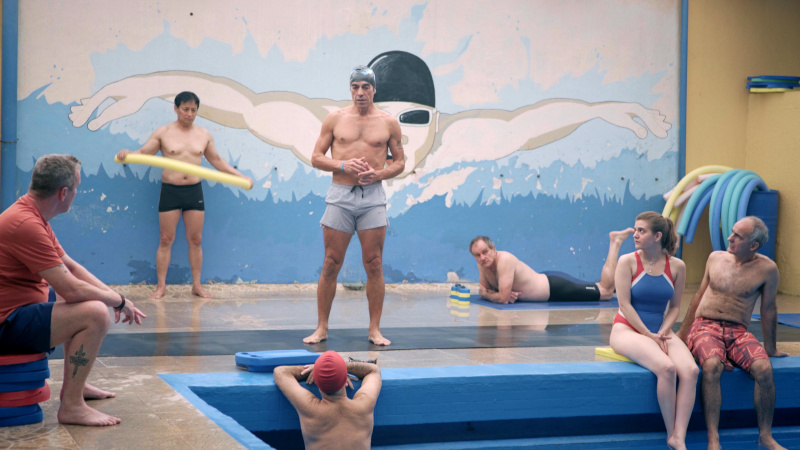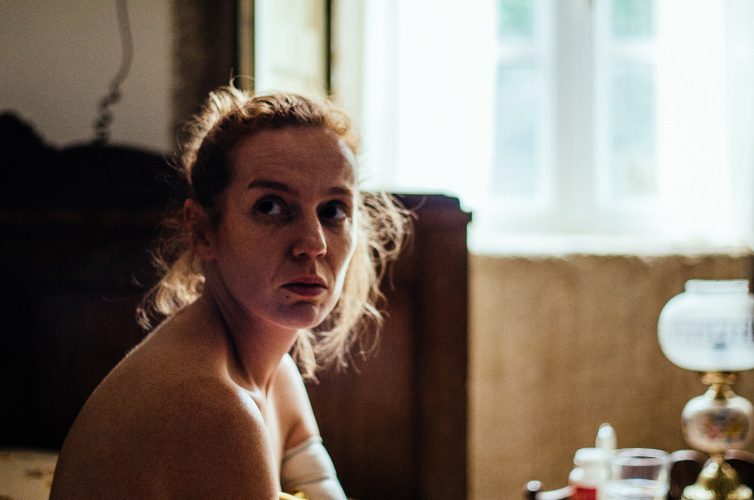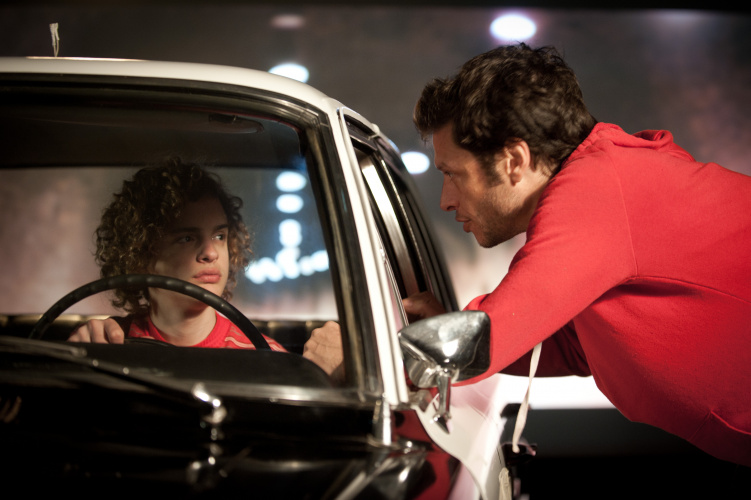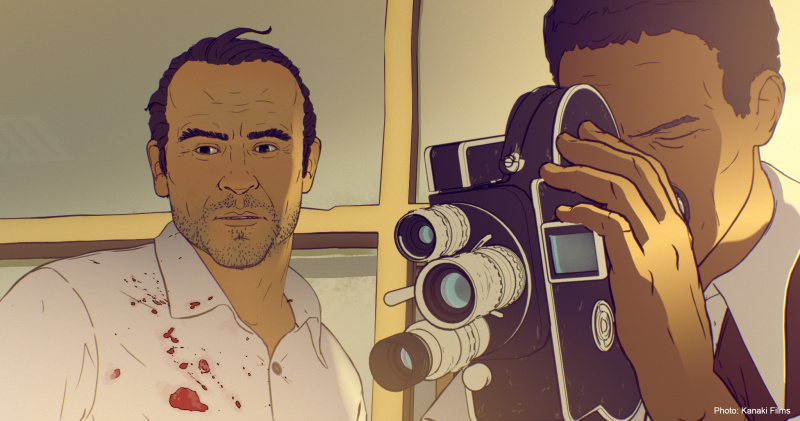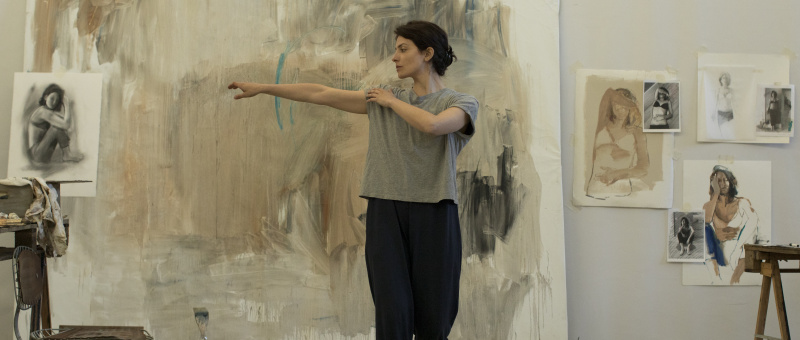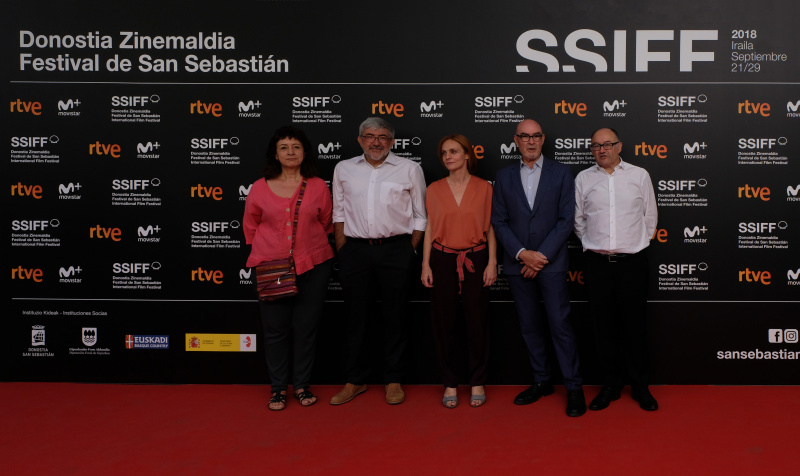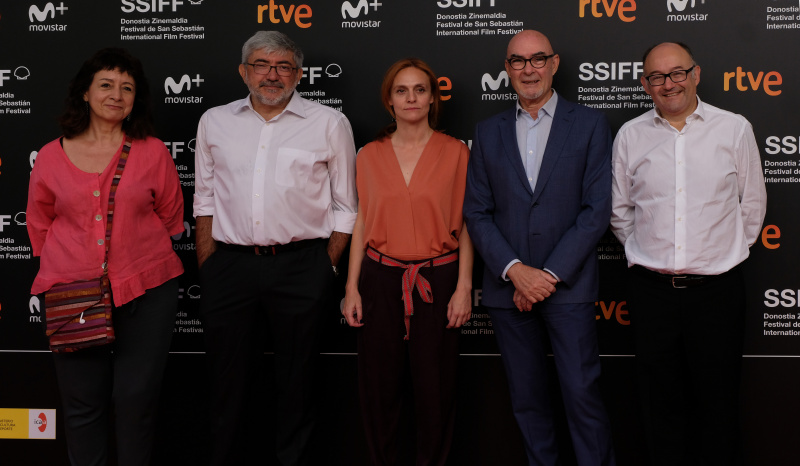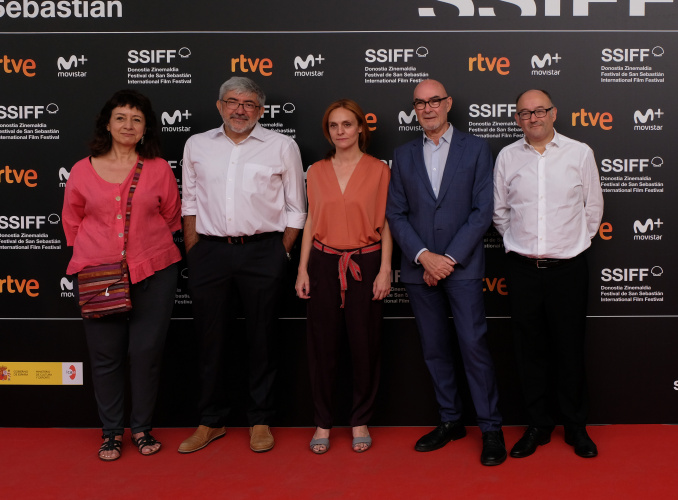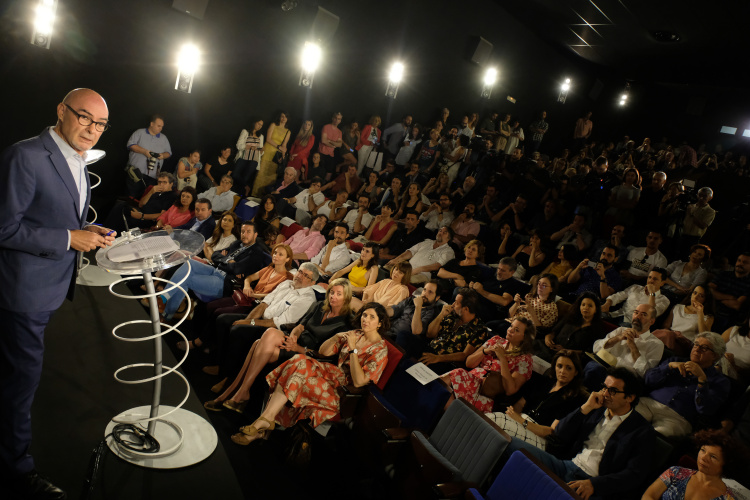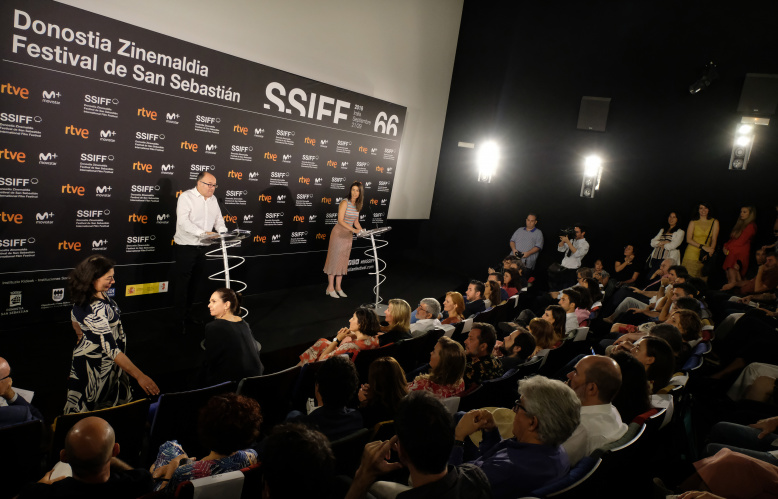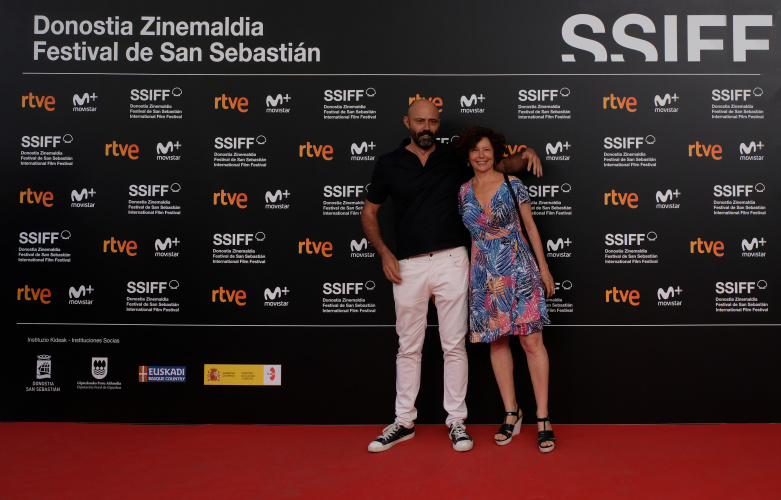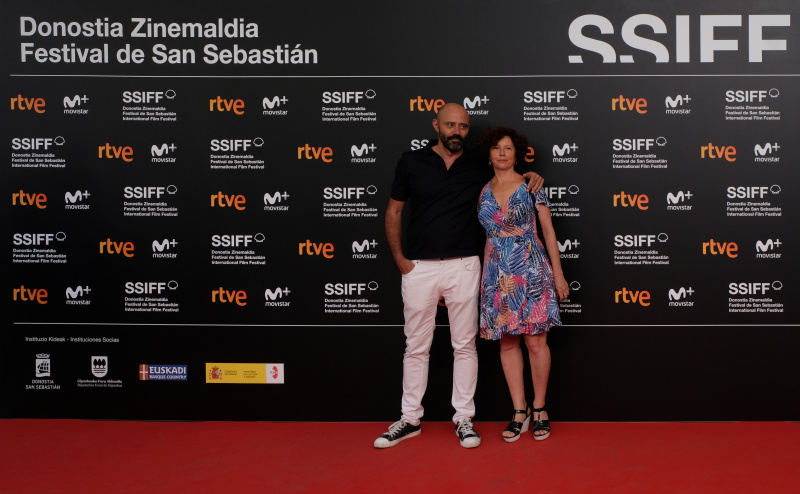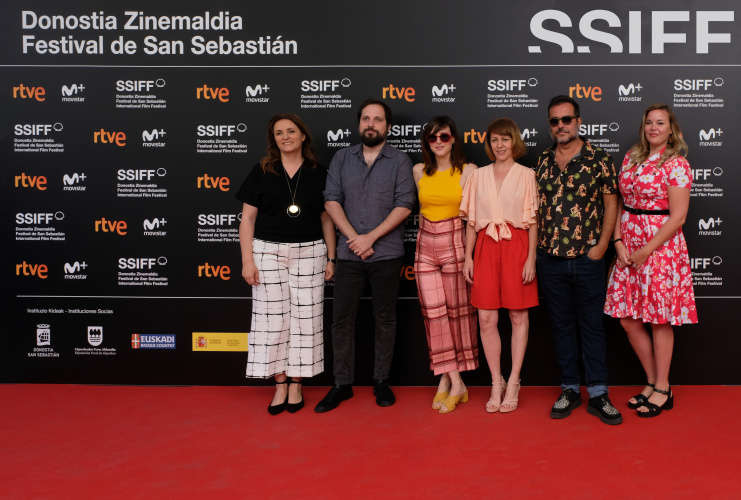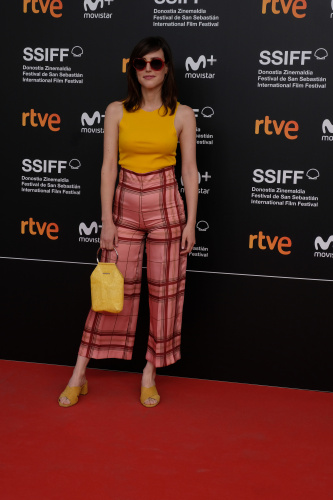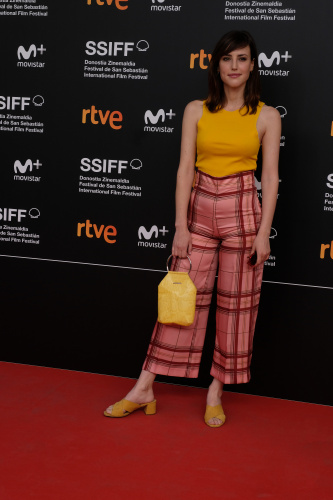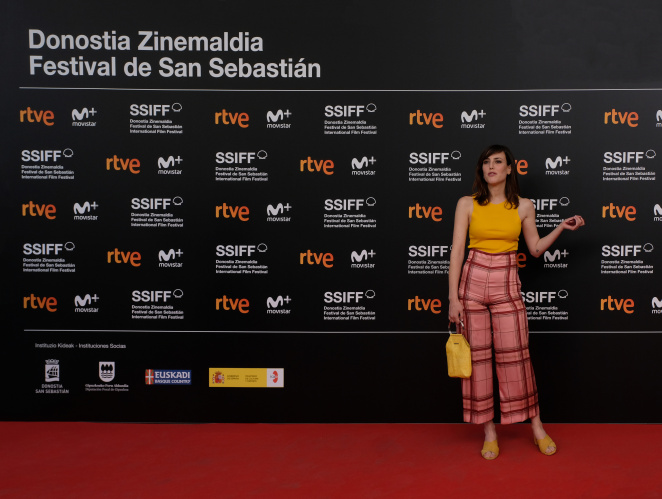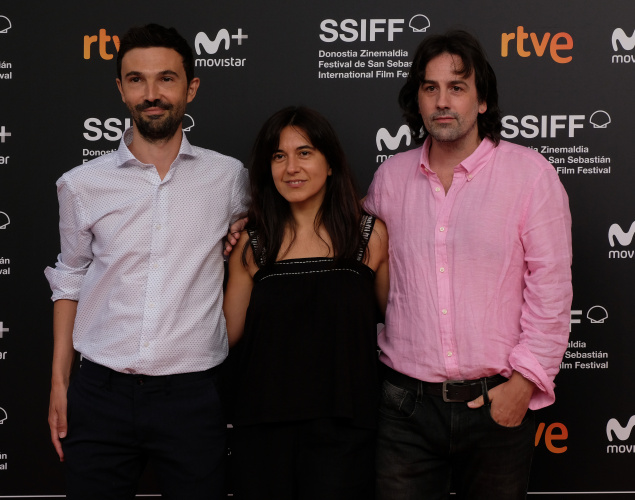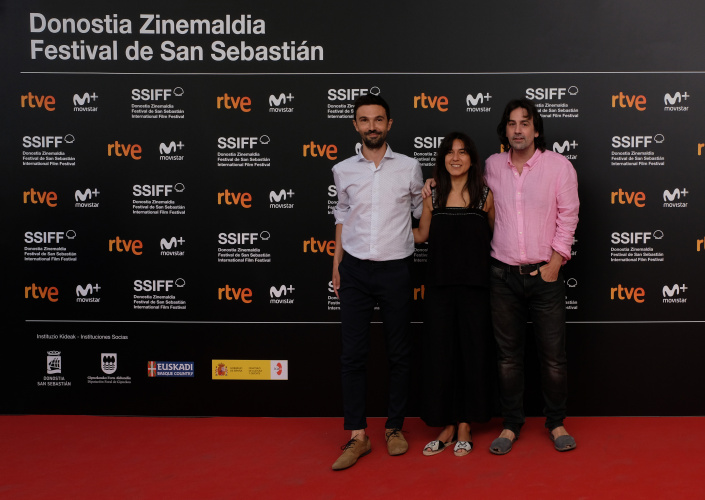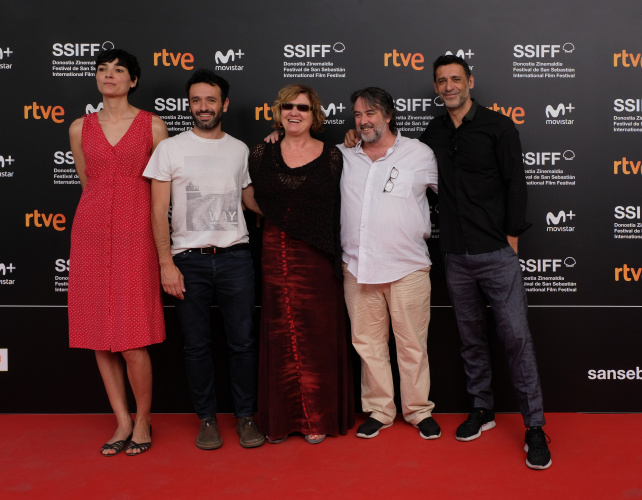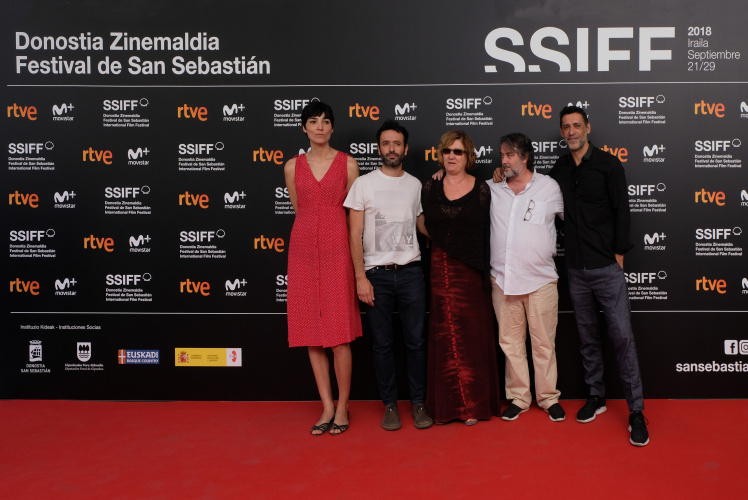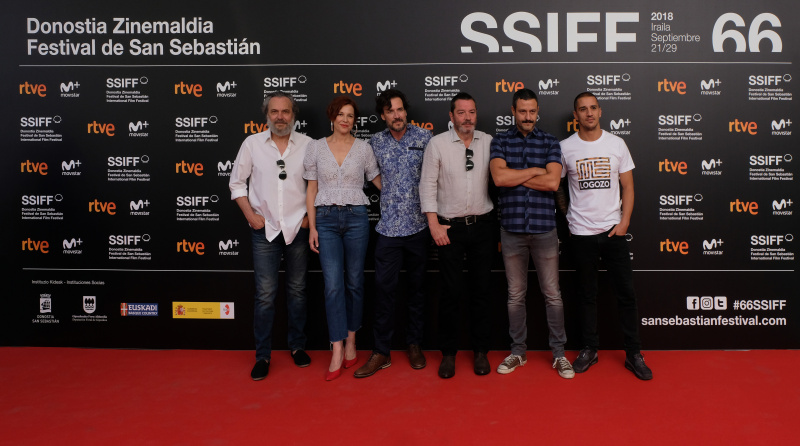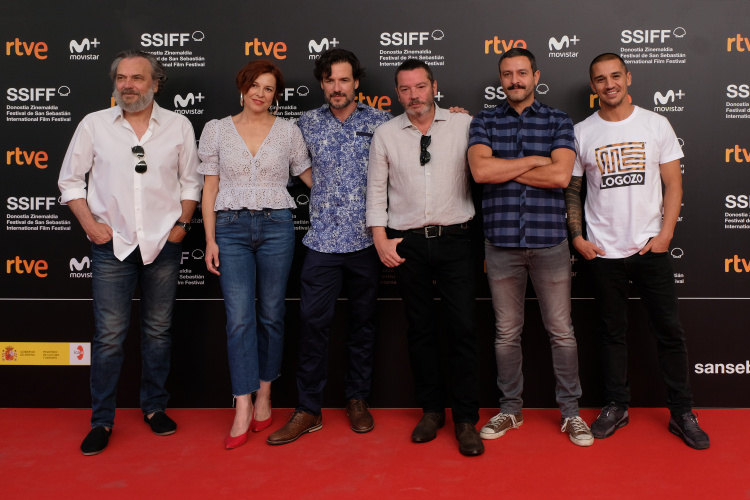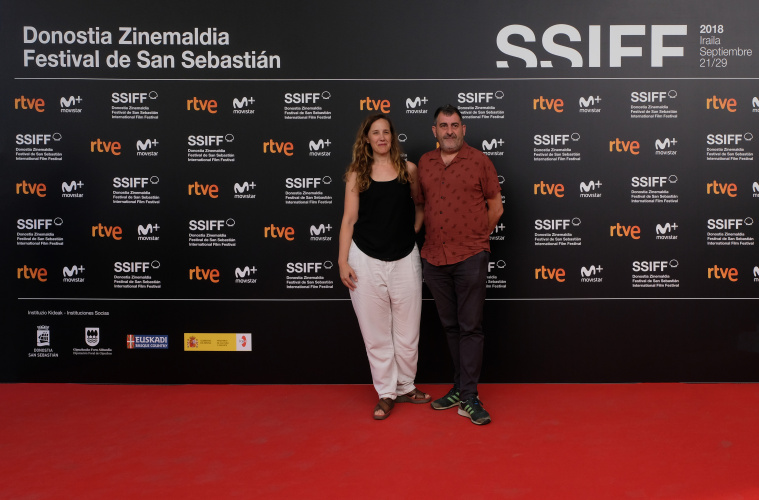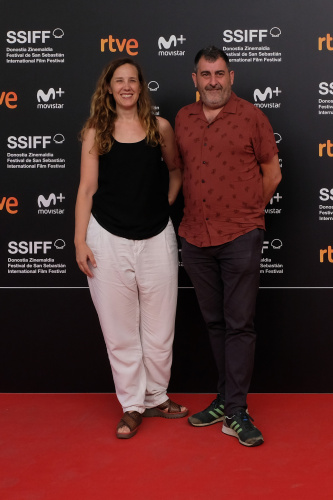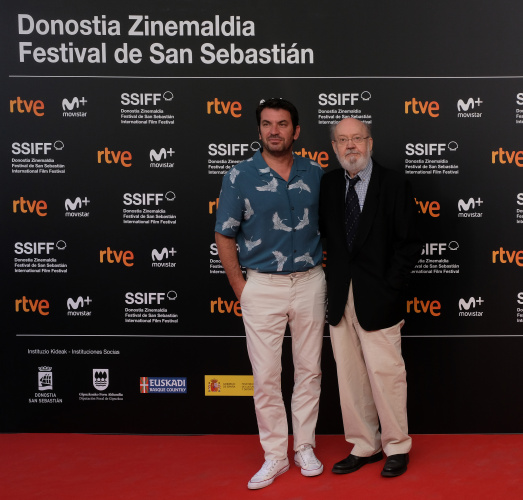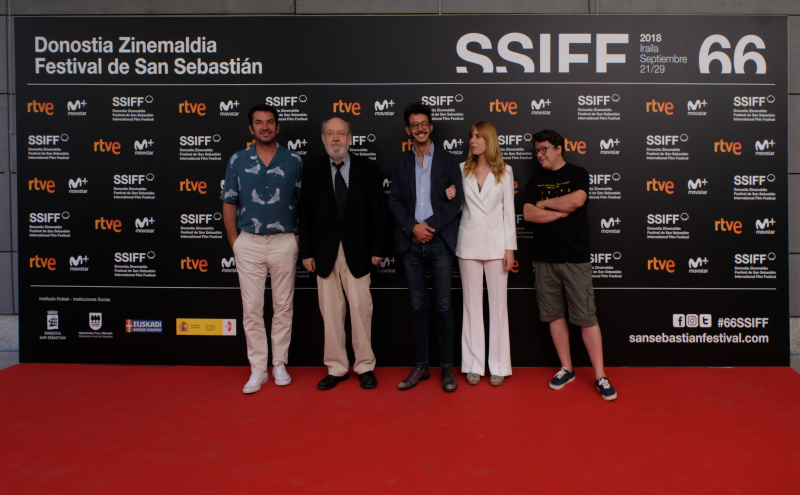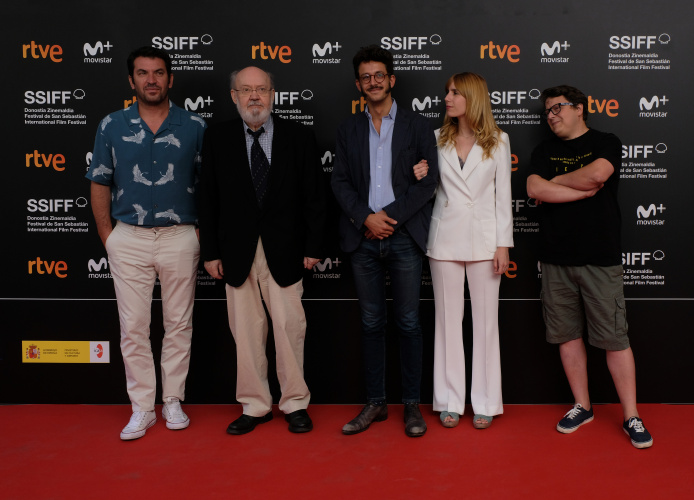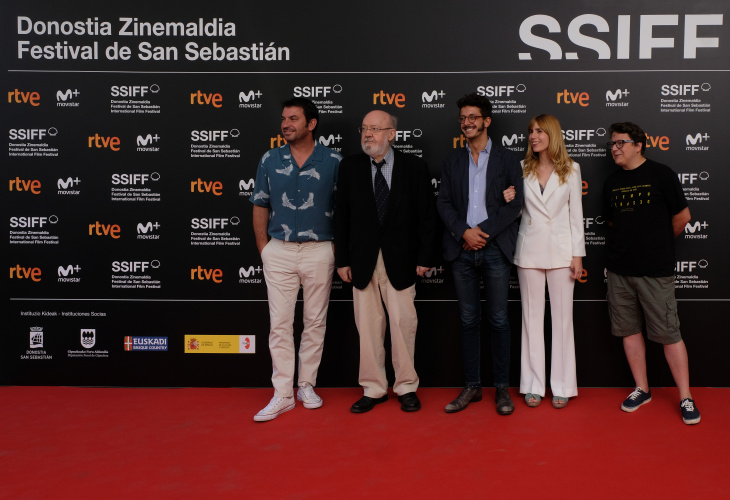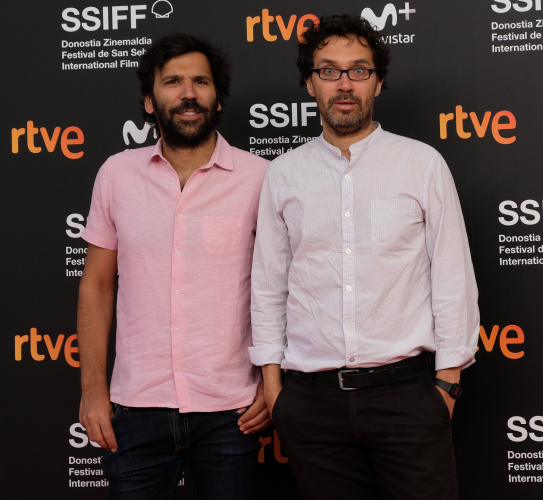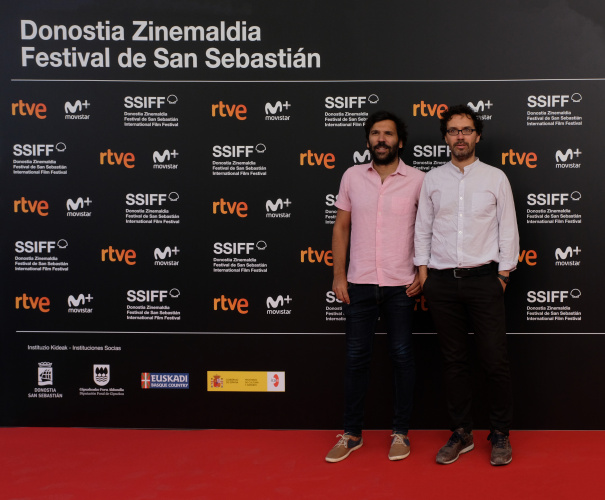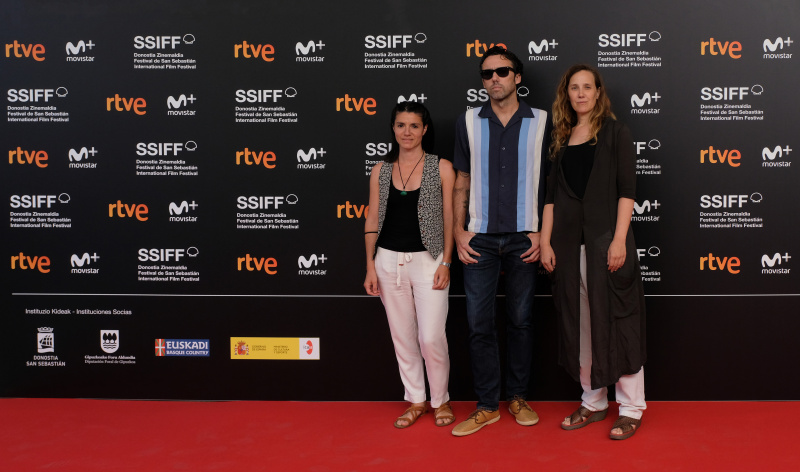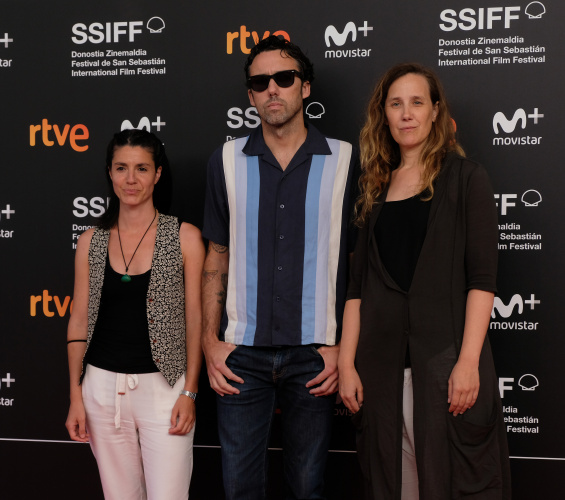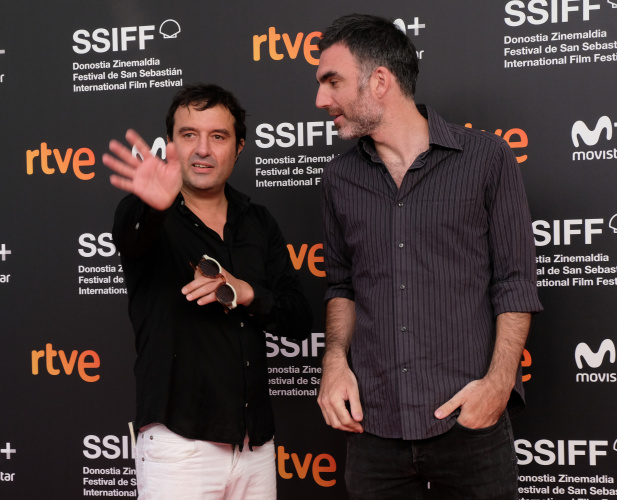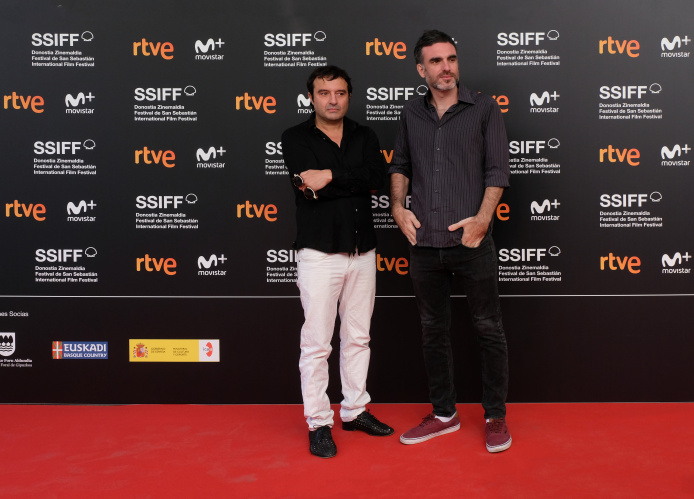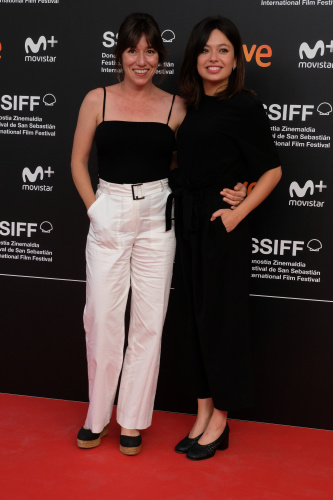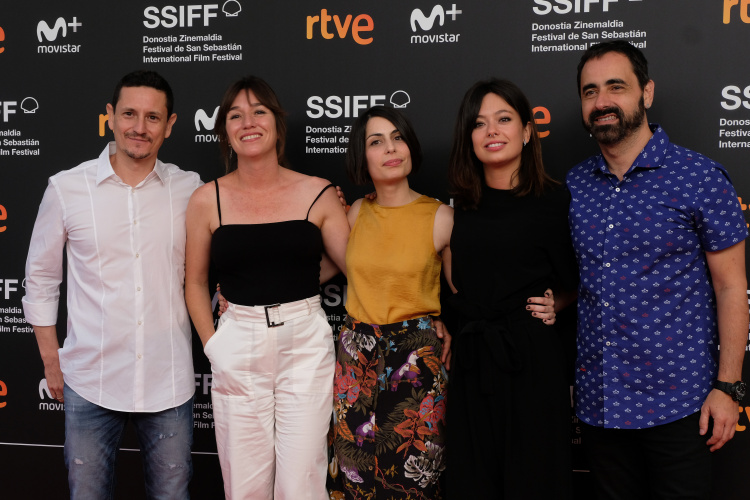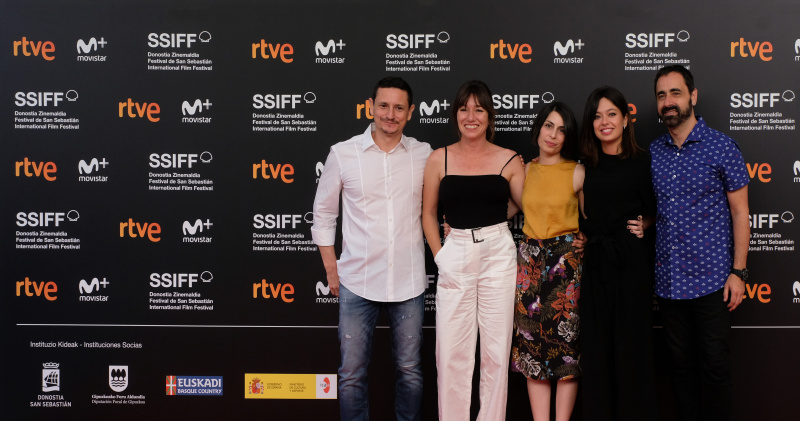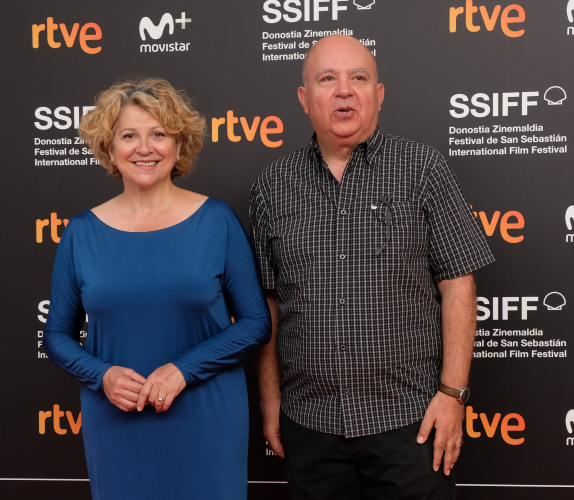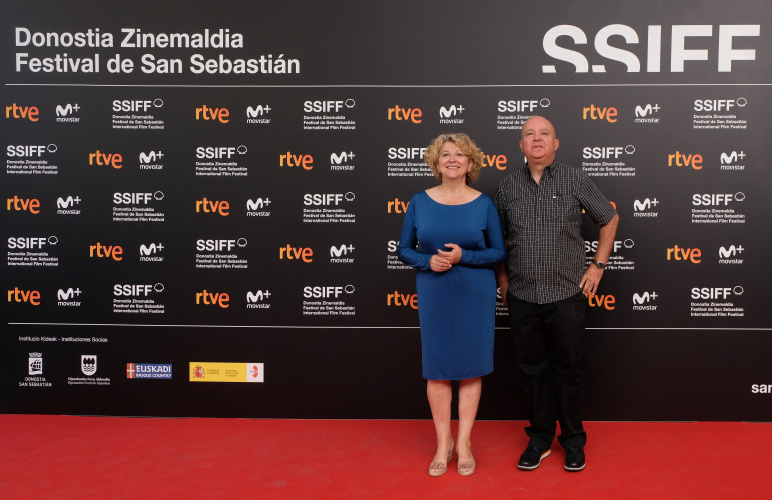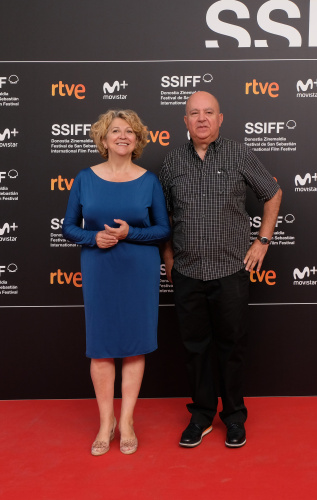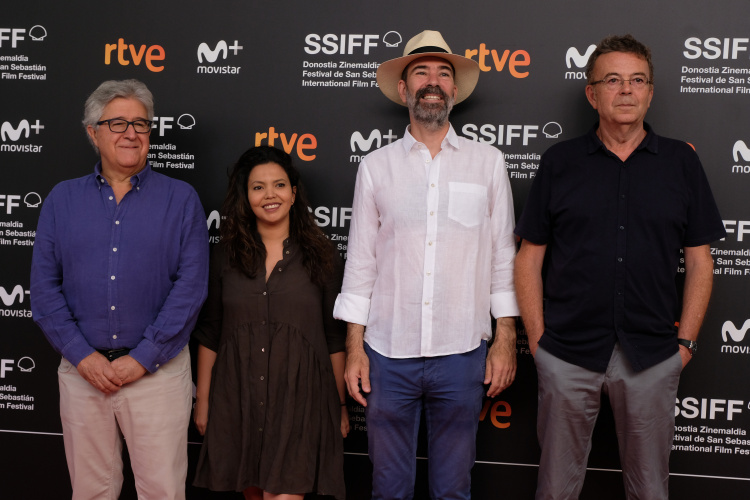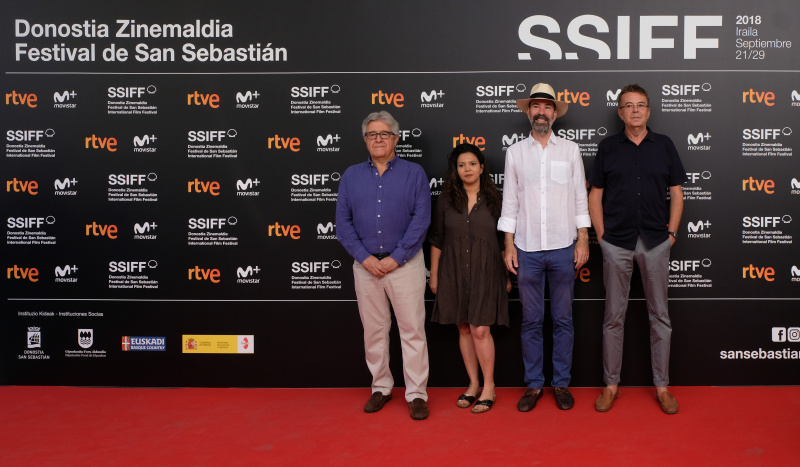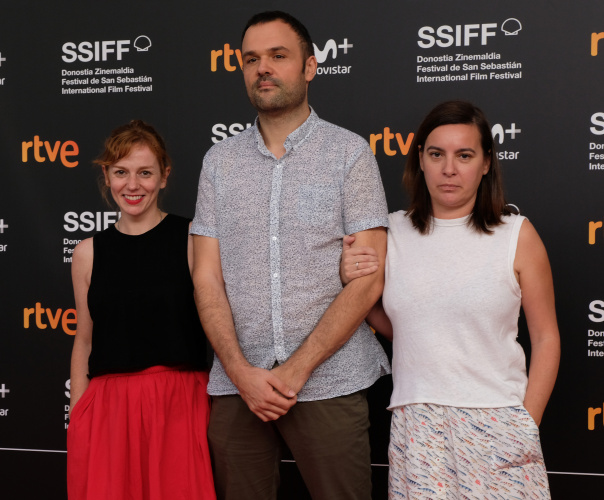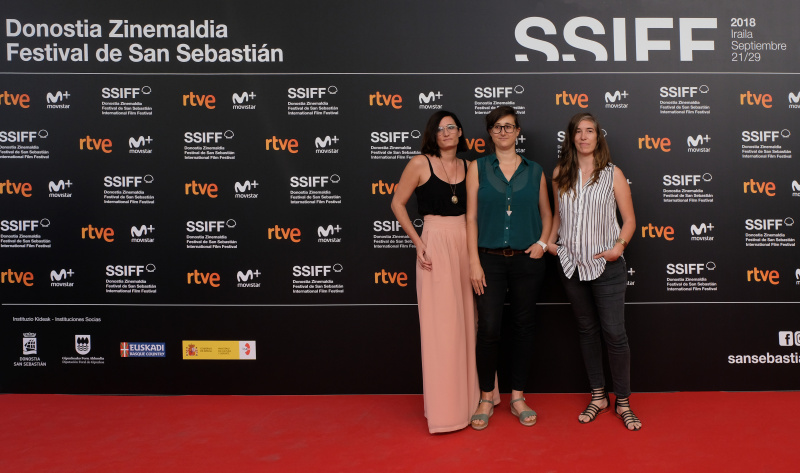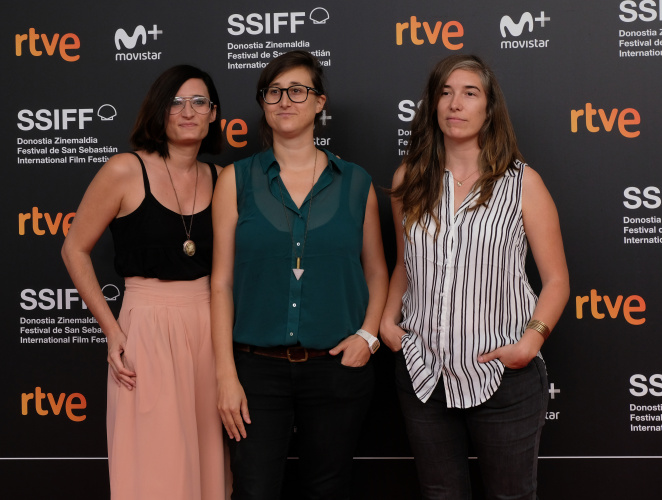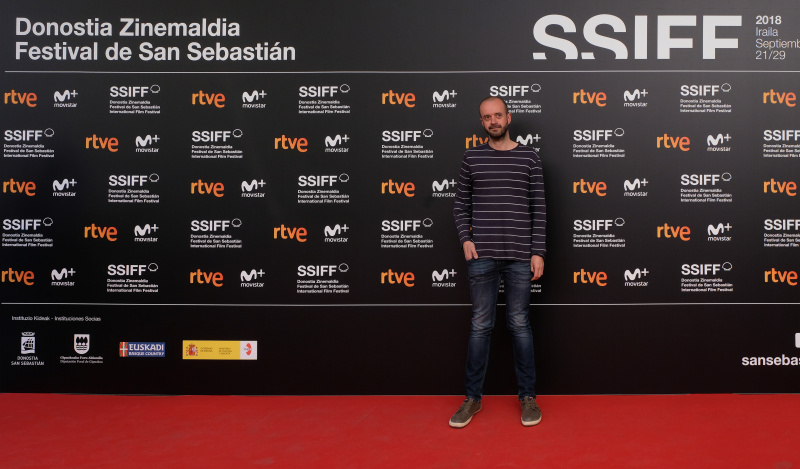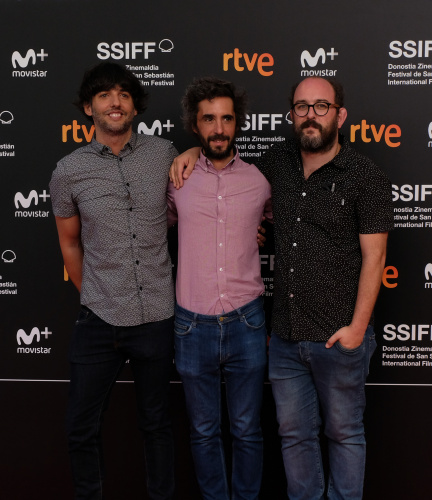Today Spain’s Academia de las Artes y las Ciencias Cinematográficas hosted the presentation of nineteen Spanish-produced films which can be seen at the 66th edition of the San Sebastian Festival, to run from 21-29 September. José Luis Rebordinos, the Festival Director, and Ruth Pérez de Anucita, Head of Communications, revealed the titles to be presented in the Official Selection, New Directors, Zabaltegi-Tabakalera and Perlak.
Icíar Bollaín (Madrid, 1967) will make her third-time bid for the Golden Shell with Yuli. Following the Official Selection presentation of Te doy mis ojos (Take My Eyes,2003), with the result of two Silver Shells for its leading characters, Laia Marull and Luis Tosar, and Mataharis (2007), Bollaín addresses in Yuli, with a screenplay by Paul Laverty inspired in Carlos Acosta’s autobiographical No Way Home, the tale of a black dancer who became the leading figure of London’s Royal Ballet.
This is also the third time Isaki Lacuesta (Girona, 1975) will have competed for the Golden Shell, although it is his fourth participation in the Official Selection due to Murieron por encima de sus posibilidades (Dying Beyond their Means) having been selected out of competition. Lacuesta, who already enjoyed a taste of what it’s like to win the Festival’s top award, with Los pasos dobles (The Double Steps, 2011), presents Entre dos aguas (Between Two Waters), starring the two Roma brothers who appeared in one of the director’s first films, La leyenda del tiempo, as teenagers.
Likewise, among his awards Carlos Vermut (Madrid, 1980) can count the Golden Shell garnered for his second film, Magical Girl (2014). In Quien te cantará, which he also wrote, he is joined by the actresses Najwa Nimri, Eva Llorach, Carme Elías and Natalia de Molina to tell the story of a singer who loses her memory shortly before making her stage comeback.
For Rodrigo Sorogoyen (Madrid, 1981) this is his second inclusion in the Official Selection. In 2016, with Que Dios nos perdone (May God Save Us) he scooped up in San Sebastian the award for Best Screenplay, written by the director and Isabel Peña. El Reino (The Realm) his latest work, stars Antonio de la Torre as a politician involved in a corruption ring.
For the second year running, a television series has been selected for the Official Selection. Following the screening of La peste (The Plague, Alberto Rodríguez), the Festival will present the complete Gigantes series, directed by Enrique Urbizu (Bilbao, 1962) and Jorge Dorado (Madrid, 1976), to participate in the Festival out of competition. Urbizu, who competed in the Official Selection in 2012 with his previous film, No habrá paz para los malvados (No Rest for the Wicked) once again directs José Coronado.
Featured among the special screenings is the latest work by Telmo Esnal, Dantza, winner of the Glocal in Progress Industry Award in the first edition of the industry activity focused on European productions in non-hegemonic languages. This is the first time that Esnal (Zarautz, Gipuzkoa, 1966) will have participated in the Official Selection after having been included in the New Directors selection with Aupa Etxebeste, (2005), co-helmed with Asier Altuna, winner of the Youth Award, and Urte berri on, amona! (Happy New Year, Grandma!, 2009).
Also as a special screening is the fourth participation in the Official Selection by José Luis Cuerda (Albacete, 1947), who formerly presented in San Sebastian Pares y nones, El bosque animado and La lengua de las mariposas (Butterfly). The director, screenwriter and producer will premiere Tiempo después, the sequel to one of his best known films, Amanece, que no es poco.
This participation in the Official Selection joins the Spanish productions already announced in the New Directors section: Koldo Almandoz (San Sebastian, 1973), who presented in Zabaltegi his first feature, Sipo Phantasma (Ghost Ship), following its premiere in Rotterdam, and now brings his second feature Oreina (The Deer); Elías León Siminiani (Santander, Spain, 1971), Goya nominee for Mapa (Map), who will present Apuntes para una película de atracos (Notes for a Heist Film); the first film by Celia Rico Clavellino (Seville, 1982), Viaje al cuarto de una madre (Journey to a Mother's Room), featuring Lola Dueñas and Anna Castillo in the leading roles; and the co-production with Argentina and with Cuba, Para la guerra (To War), first feature film by Francisco Marise (La Plata, Argentina, 1985), which has the participation of filmmaker Javier Rebollo in its editing and production.
In addition to Trote (Trot), by Xacio Baño, participant in the first edition of the Ikusmira Berriak residencies programme, and the co-production Belmonte, by Federico Veiroj, both selected for the Zabaltegi-Tabakalera programme, are the feature film Teatro de guerra (Theatre of War), by Lola Arias (Buenos Aires, 1976), built around the conversations of English and Argentine Falklands War veterans and two shorts, 592 metroz goiti (Above 592 Metres), by Maddi Barber (Pamplona, 1988), from the Kimuak 2018 crop, and Los que desean (Those who Desire), by Elena López Riera (Orihuela, Alicante, 1982), which will compete in August at the Locarno Festival.
Added to the presences already revealed in Perlak of Un día más con vida / Another Day of Life, by Raúl de la Fuente and Damián Nenow, and El ángel, by Luis Ortega, are Petra, by Jaime Rosales (Barcelona, 1970), Directors’ Fortnight premiere at the last Cannes festival. Rosales, who competed in 2008 for the Golden Shell with Tiro en la cabeza (Bullet in the Head) and carried off the Fipresci Award, is joined by the actors Bárbara Lennie and Alex Brendemühl and by the screenwriters Clara Roquet and Michel Gaztambide.
OFFICIAL SELECTION - In competition
Manuel, an influential deputy secretary of a regional government who has everything going his way for making the leap into national politics, sees how his perfect life falls to pieces after news leaks of his involvement in a corruption ring with Paco, one of his best friends. While the media starts reporting the extent of the scandal, the party closes ranks and only Paco comes out unscathed. Manuel is expelled from the kingdom, singled out by public opinion and betrayed by those who had been his friends until only a few hours ago. Although the party wants him to bear full responsibility, Manuel refuses to fall alone. With the sole backing of his wife and his daughter, and caught in a spiral to survive, Manuel will see himself forced to fight against the machinery of corruption which has been well greased for years and against a party system in which the kings fall, but the kingdoms continue.
Isra and Cheíto are two Roma brothers: Isra was sent to prison for drug dealing and Cheíto signed up for the Marines. When Isra is released from prison and Cheíto returns from a long mission, they return to San Fernando. The reunion between the siblings brings memories of their father’s violent death when they were only boys. Twelve years have passed since La Leyenda del tiempo (The Legend of Time), Lacuesta’s film when Isra and Cheíto were teenagers. Now Isra returns to San Fernando to recover his wife and kids. But will he manage to go straight in a place with the highest unemployment rate in Spain? Their search for redemption, their need to sort out their lives and to find reconciliation between them unites Isra and Cheíto once again.
Lila Cassen was the most successful Spanish singer of the nineties until she mysteriously vanished from one day to the next. Ten years later Lila is preparing her triumphant stage comeback; however, shortly before the long-awaited date she is involved in an accident and loses her memory. Violeta’s life is dominated by her conflictive daughter Marta. Every night she finds escape from her reality by doing the only thing that makes her happy: imitating Lila Cassen at the karaoke joint where she works. One day Violeta receives a fascinating offer: to teach Lila Cassen how to be Lila Cassen again.
Yuli tells the story of the Cuban dancer Carlos Acosta (who plays himself), from his beginnings in a poor neighbourhood of Havana until becoming the star of one of the biggest ballet companies in the world. Yuli (Carlos's nickname) is a gifted boy who doesn't want to be a dancer but who, forced by his father Pedro, and tutored by the professor and director of the Cuban National School of Ballet, Cherry, will become one of the best dancers of his generation, breaking taboos on becoming the first black dancer to play Romeo at the Royal Ballet in London, where he forged his stellar career and his legend for 17 years. Yuli is a film about roots, about the relationship between Carlos and his father, with his family, with Cuba. Yuli is about art, about the sacrifice of dedicating one's life to that art and, above all, about what we are.
OFFICIAL SELECTION - Not in competition
For decades the Guerrero brothers have controlled the flow of drugs from the peninsula to the rest of Europe. Now they're faced with one of the most crucial moments in their history. The eldest brother, Daniel, is released from jail after fifteen years, eager to recover his place in the family. The world Daniel left behind no longer exists. His father Abraham is sick, his brother Clemente has disappeared and now his middle brother, Tomás, holds the reins of the family business. The Guerrero brothers' worst enemy will be found at home, among themselves: the education they received from their father to fight like a pack of hounds to survive, no matter what the means, with no moral limits, like Giants. A war between siblings fought to the bitter end. Presentation of the first two episodes of the new Movistar+ series.
OFFICIAL SELECTION - Special Screenings
The storm breaks after a hard day's work in the fields. When the rain eases off life springs up from the previously barren land. Fruit grows and ripens, survives disease and becomes the apples which give life to cider. Then comes the time to harvest, offer toasts and celebrate love. A story about the cycle of life and death, the fight for survival. Where the passage of time is marked by the course of nature. And dance is the language chosen to tell its tale. Music accompanies daily routines: Life is rhythm! Universal themes, dressed here with particular symbology. Symbology which shows the hypnotic universe of traditional dance. A poetic song to tradition, the land, its people, myths and customs. A tale about the miracle of existence.
In 9177, give or take a thousand years (there's no point in being finicky about these details) the whole world, and, according to some authors, the universe too, has been reduced to a single Representative Building and squalid suburbs inhabited by all of the out-of-work and hungry in the cosmos. One of the down and outs, José María, decides that by facing up to the difficulties and selling his delicious homemade lemonade in the Representative Building, another world is possible.
NEW DIRECTORS
Elías is a film director whose dream was to make a heist movie. During the summer of 2013 he reads an article about the arrest of "The Robin Hood of Vallecas", leader of "the sewer gang", making him feel as though he may have found the opportunity to make his dream come true. He writes to Robin Hood in the prison where he is serving his sentence. Against all odds, Elías receives a reply three weeks later. Robin Hood agrees to receiving a visit from him in prison.
Khalil is a young man torn from his roots who lives on the edge of town, where the industrial estates merge into the river and the marshes. Khalil gets by as best he can and spends his time with an old poacher, who shares a house on the riverbank with a brother he hasn't spoken to in years. On the banks of the marshes, the tides mark the time of love and heartbreak, of friendship and revenge.
Para la guerra explores the memory and loneliness of a former Cuban internationalist soldier by observing his body and his (extra)ordinary gestures. This is a war film with no shooting, but with a wound: that of this special forces veteran who tries to find the colleagues of his commando who survived their last mission 30 years ago.
Leonor wants to leave home but she doesn't dare tell her mother. Estrella doesn't want her daughter to leave, but she isn't able to keep her by her side. Mother and daughter will have to face up to a new stage in their lives in which the world they share is wavering.
ZABALTEGI-TABAKALERA
What life chances are left when a territory is completely altered? On the slopes of the Navarrese Pyrenees, the construction of the Itoiz dam in the 1990s flooded seven towns and three nature reserves. A strip of bare land at the height of elevation 592 today marks a dividing line in the landscape of the valley. Below the level, the water; above, life goes on.
Belmonte, interested in portraying the human being, their folds, their disproportion, is soon to put on a painting exhibition at the Museum of Visual Arts in Montevideo, but he is more occupied with thoughts of the changes underway in his family: his ex-wife is pregnant by another man, and he realises that his daughter, Celeste, will spend less time with him when her little brother is born. Belmonte needs the bearings of being with his daughter, preparing her lunch, taking her to school and, above all, of starting to share with her his interior world without concealing his concerns, even if they are those of an adult.
In Southern Spain, a peculiar race between colourful hand-painted pigeons will reward not the fastest one, but the one which succeeds in seducing a female pigeon and flying for the longest possible time at her side.
In 1982, Argentina and UK fought the Falklands War. The war ended with the British military victory and took about 1,000 lives from both sides. While the conflict took place years ago, the sovereignty of the islands is still in dispute. Theatre of War tells the story of how six veterans from the Falklands War came together to make a film. Almost thirty-five years after the conflict, three British and three Argentine veterans spent months together discussing their war memories. This film is a way of showing the whole social experiment of making an artistic project with one-time enemies of war: the auditions to find the protagonists, the first meetings and discussions with them, the theatrical re-enactments of their memories in different scenarios: a swimming pool, a construction site, a military regiment. All the scenes in the film are at the same time authentic and artificial.
Daughter of. Sister of. Carme lives in a Galician mountain village with her sick mother and her father Ramón, to whom she hardly speaks. She works in a bakery and feels the need to escape from this oppressive atmosphere, but circumstances always stop her from breaking free. From trotting. From running. Trote takes place during the weekend of the celebrated “Rapa das Bestas,” a symbol of the age-old struggle between man and horse. The village prepares for the celebration. Luis, Carme’s older brother, comes home for a few days with his wife María. Trote is the struggle between man and horse, between reason and instinct.
PERLAK
Carlitos is a seventeen-year-old youth with movie star swagger, blond curls and a baby face. As a young boy, he coveted other people's things, but it wasn't until his early adolescence that his true calling manifested itself: to be a thief. When he meets Ramon at his new school, Carlitos is immediately drawn to him and starts showing off to get his attention. Together they will embark on a journey of discoveries, love and crime. Killing is just a random offshoot of the violence, which continues to escalate until Carlitos is finally apprehended. Because of his angelic appearance, the press dubs Carlitos "The Angel of Death". Showered with attention because of his beauty, he becomes an overnight celebrity. Altogether, he is believed to have committed over forty thefts and eleven homicides. Today, after more than forty-five years in jail, Carlos Robledo Puch is the longest- serving prisoner in the history of Argentina.
Kapuscinski is a Polish reporter, idealist and friend of lost causes. In 1975 he travels to Angola, last battlefield of the Cold War, a place where the wrong greeting can cost you your life. The African country and the people he meets on his adventure, such as the charismatic guerrilla fighter Carlota, will change him forever. The suicide journey to the heart of darkness turn the journalist into an author.
Petra doesn't know who her father is, his identity has been kept from her all her life. When her mother dies she sets out on a search leading her to Jaume, a famous plastic artist, and a powerful, ruthless man. On her quest to discover the truth, Petra also meets Lucas, Jaume's son, and Marisa, Jaume's wife and Lucas's mother. The story of the characters proceeds to entwine in a spiral of evil, family secrets and violence taking them all to the limit. Fate will make a twist in its cruel logic, opening a path for hope and redemption.


